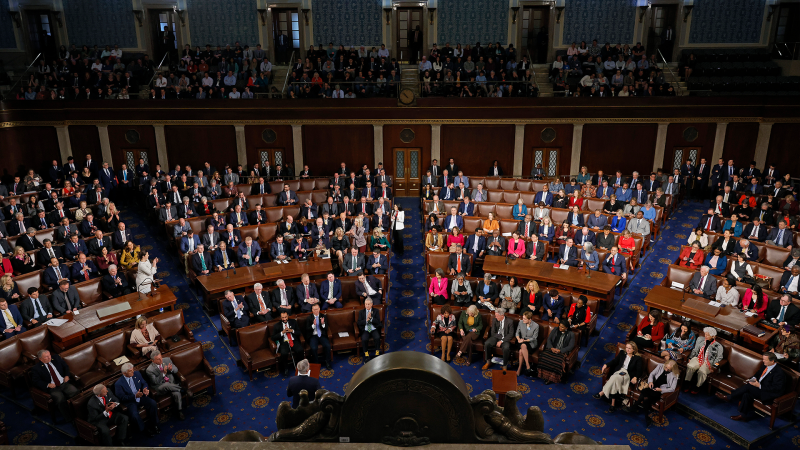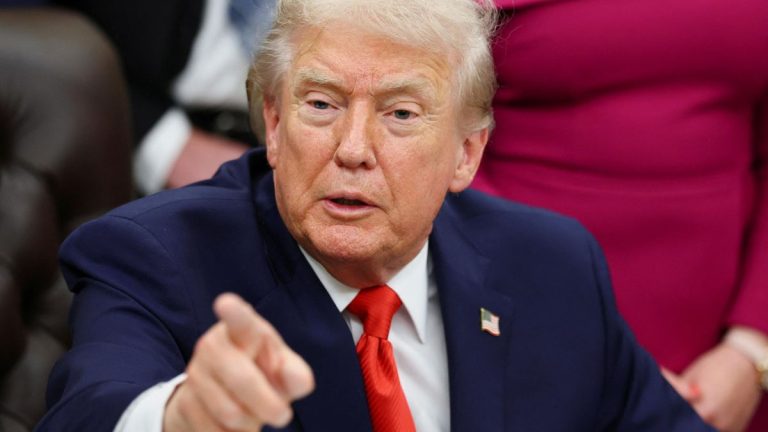In a closely watched late-night session, the U.S. Senate approved a sweeping $9 billion federal spending rescission package in a narrow 51-48 vote, signaling a major win for the White House’s agenda to rein in government expenditures. The vote followed weeks of contentious debate and political wrangling, as lawmakers sought to reconcile differing visions of fiscal responsibility and domestic priorities.
The measure, which includes steep reductions in foreign aid and eliminates federal subsidies for National Public Radio (NPR) and the Public Broadcasting Service (PBS), marks a significant step toward President Donald Trump’s broader goal of shrinking the size and scope of the federal government.
Initially passed by the House in the form of a $9.4 billion package, the Senate version saw a $400 million reinstatement in funding for AIDS relief efforts in Africa. That adjustment was reportedly critical in swaying some undecided members and ensuring the bill’s passage in the upper chamber. The House will now need to revisit the revised version.
Supporters of the bill hailed it as long overdue. Senate Majority Leader John Thune called the vote a “crucial first step” toward restoring fiscal discipline after years of ballooning deficits. “The administration has done the hard work of identifying wasteful spending,” Thune said. “Now, we in the Senate are doing our part to cut out the excess. It’s a modest move, but one that sends a powerful message.”
However, the vote was far from unanimous, and dissent came from some unexpected quarters. Concerns about the nature of the cuts, as well as the transparency of the legislative process, led to tension on the Senate floor. A key sticking point for some lawmakers was the limited information provided by the Office of Management and Budget (OMB). Critics argued that the rescissions were drafted too hastily, with little clarity on which programs would face reductions.
One lawmaker pointed to a $2.5 billion cut to the Development Assistance account — which funds basic education, sanitation, and food programs in impoverished regions — as an example of vague budgeting. “We don’t have a breakdown. We don’t know which programs are getting hit the hardest. This is no way to legislate,” the senator said during floor remarks.
Public broadcasting emerged as one of the most debated components of the package. Several senators raised alarm over the proposed elimination of federal support for NPR and PBS, noting the vital role local public radio stations play, especially in rural and underserved communities. One senator highlighted the recent tsunami warnings issued across Alaska as a reminder of how critical these stations are for delivering emergency information in real time.
“The tsunami warnings have been canceled, but the warning to Congress should stand,” she said. “Public broadcasting is more than culture and education — it’s a lifeline.”
While some lawmakers attempted to introduce amendments to soften the blow to public media, only a few made it to the floor. One such amendment, aimed at reducing the total cuts to just over $6 billion, was introduced by a Democratic senator on behalf of a Republican colleague who ultimately declined to present it herself. Another Republican put forward an amendment focused specifically on preserving public broadcasting, citing the unique needs of her home state.
Despite these objections, the bill cleared the chamber with the slimmest of margins. GOP leadership defended the outcome, arguing that even a relatively small package of cuts — less than 0.1% of the federal budget — was an important symbolic victory.
“This should be a chip shot,” said Sen. Ron Johnson (R-Wis.), voicing his confidence in the Trump administration’s judgment. “They’re not cutting essential services. They’re targeting inefficiency.”
Sen. Eric Schmitt (R-Mo.), who led the bill’s charge in the Senate, responded to criticisms by affirming that lawmakers were fulfilling their constitutional duties. “This is part of the process,” he said. “This is fiscal conservatism at work. Let’s use this moment to highlight where we can save the American people money.”
Among the most prominent defectors from the GOP line were two veteran Republican senators: Lisa Murkowski of Alaska and Susan Collins of Maine. Their decision to side with Democrats reflected deep unease with both the process and the substance of the bill — especially as it related to transparency, public broadcasting, and foreign aid.

Emily Johnson is a critically acclaimed essayist and novelist known for her thought-provoking works centered on feminism, women’s rights, and modern relationships. Born and raised in Portland, Oregon, Emily grew up with a deep love of books, often spending her afternoons at her local library. She went on to study literature and gender studies at UCLA, where she became deeply involved in activism and began publishing essays in campus journals. Her debut essay collection, Voices Unbound, struck a chord with readers nationwide for its fearless exploration of gender dynamics, identity, and the challenges faced by women in contemporary society. Emily later transitioned into fiction, writing novels that balance compelling storytelling with social commentary. Her protagonists are often strong, multidimensional women navigating love, ambition, and the struggles of everyday life, making her a favorite among readers who crave authentic, relatable narratives. Critics praise her ability to merge personal intimacy with universal themes. Off the page, Emily is an advocate for women in publishing, leading workshops that encourage young female writers to embrace their voices. She lives in Seattle with her partner and two rescue cats, where she continues to write, teach, and inspire a new generation of storytellers.









